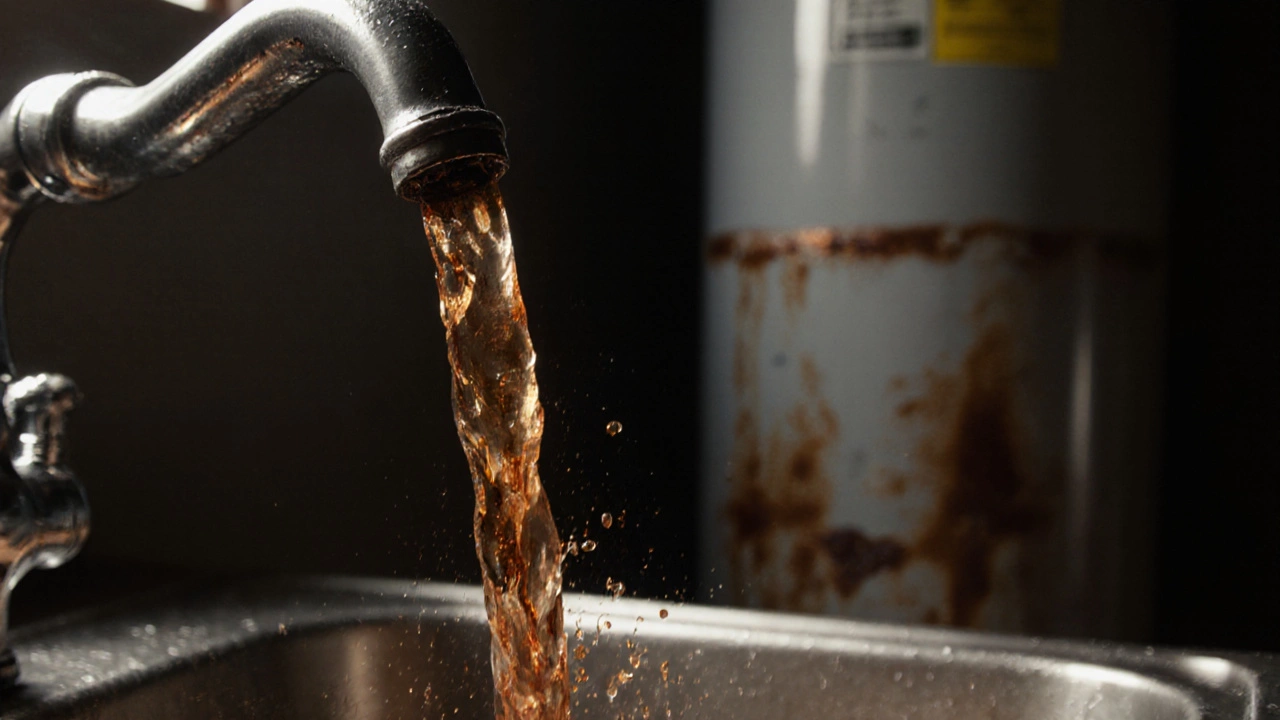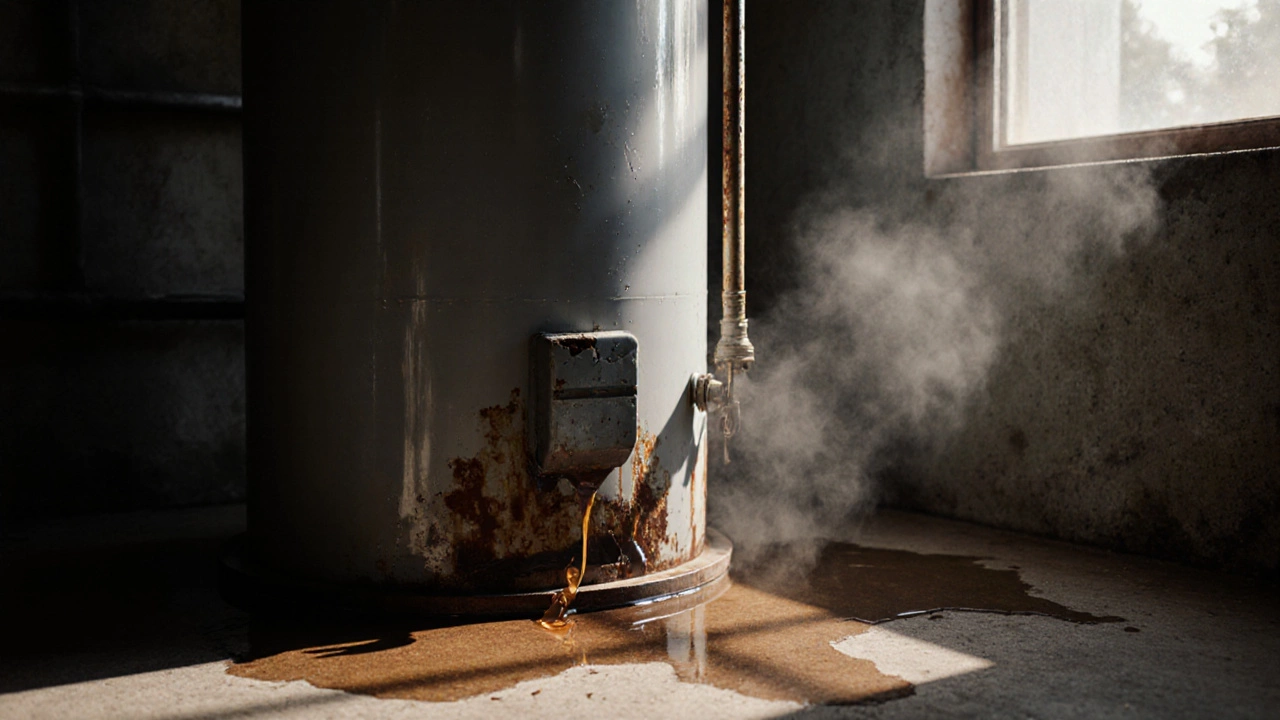
Watch for rusty water, strange noises, leaks, and rising bills-these are clear signs your water heater is failing. Know when to replace it before it breaks and floods your home.
When your leaking water heater, a home appliance that stores and heats water for showers, sinks, and laundry. Also known as a hot water tank, it’s one of the most overlooked but critical systems in your house. A small drip can turn into a flood in hours—especially if it’s coming from the bottom of the tank. Most people ignore it at first, thinking it’s just condensation or a loose pipe. But if water is pooling around the base, it’s not a minor issue. It’s a warning sign.
The water heater, a system that heats water using gas or electricity and stores it in a pressurized tank doesn’t just break—it wears out. The most common cause of leaks is corrosion inside the tank, especially after 8 to 12 years. The anode rod, which protects the tank from rust, eventually runs out. Once it’s gone, the steel walls start eating away from the inside. You won’t see it until water starts seeping out. Other causes include a faulty pressure relief valve, loose pipe connections, or a cracked drain valve. These are fixable—if caught early. But if the tank itself is leaking, you’re not repairing it—you’re buying time.
A tank leak, a breach in the water heater’s internal storage vessel that allows water to escape is different from a leaky fitting. If the water comes from the top, near the pipes or valves, you might get away with a $50 part and an hour of work. But if it’s coming from the tank’s body, especially near the bottom, the tank is done. No sealant, no patch, no trick will fix it. That’s not a repair—it’s a temporary bandage. Water damage to your floor, drywall, or basement can cost thousands. And if you wait too long, you risk mold, structural rot, or even electrical hazards if the heater is electric.
Most water heaters last 10 to 15 years. If yours is older than that and starting to leak, replacement is almost always cheaper than repeated repairs. A new unit comes with a warranty, better efficiency, and fewer surprises. You’ll also save on energy bills. Modern tanks use less power to keep water hot, and some even come with smart features that alert you to problems before they happen.
What you’ll find in the posts below are real fixes people have tried—some worked, some didn’t. We cover how to test your pressure valve, how to flush sediment that’s speeding up corrosion, and why some DIY fixes make things worse. We also break down the signs that tell you it’s time to walk away from the old tank and upgrade. No fluff. No guesswork. Just what actually matters when your water heater starts dripping.

Watch for rusty water, strange noises, leaks, and rising bills-these are clear signs your water heater is failing. Know when to replace it before it breaks and floods your home.

Learn the real signs your hot water heater is failing-rusty water, strange noises, low hot water, leaks, and age. Don't wait until it breaks. Get ahead of failure with practical advice for New Zealand homes.